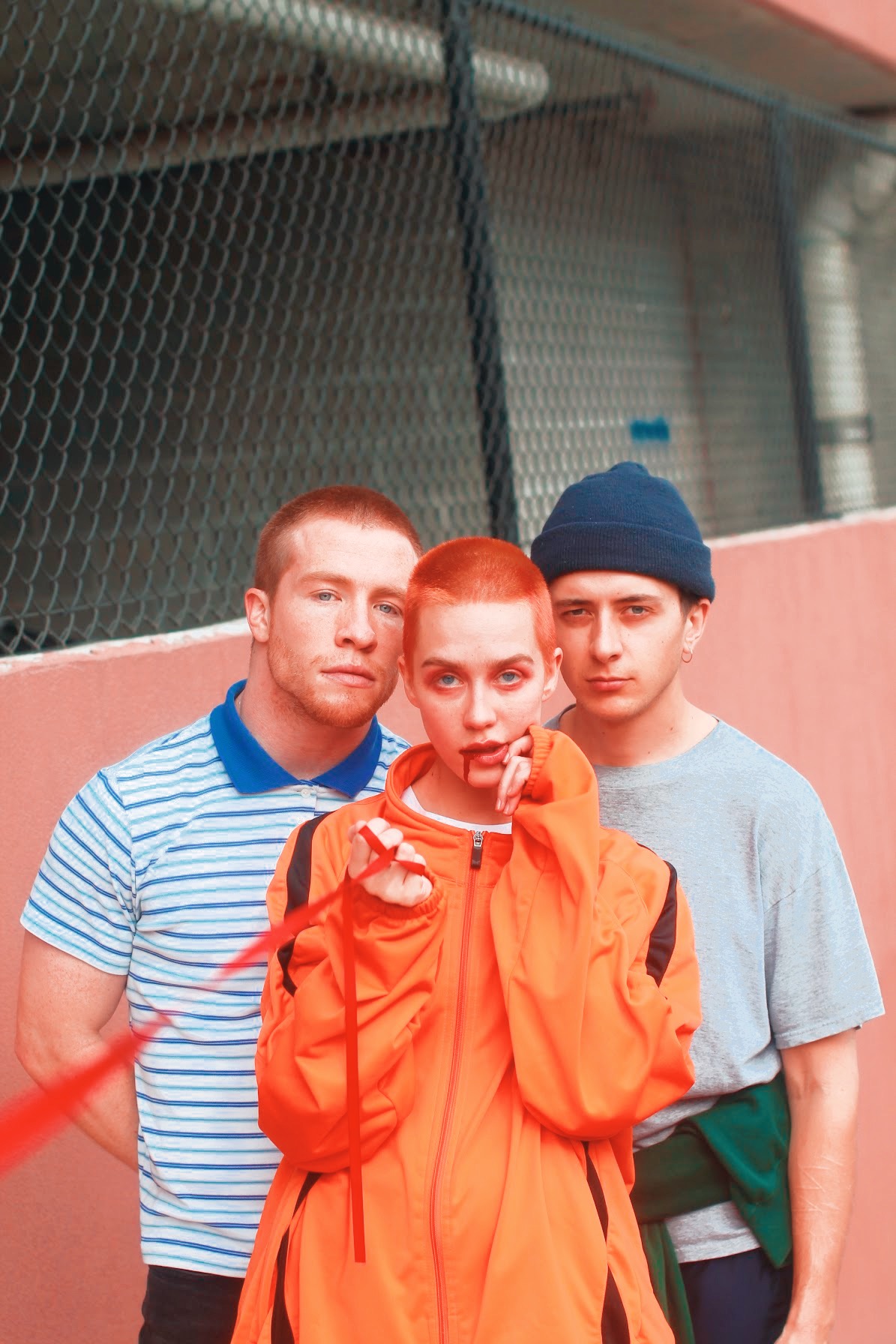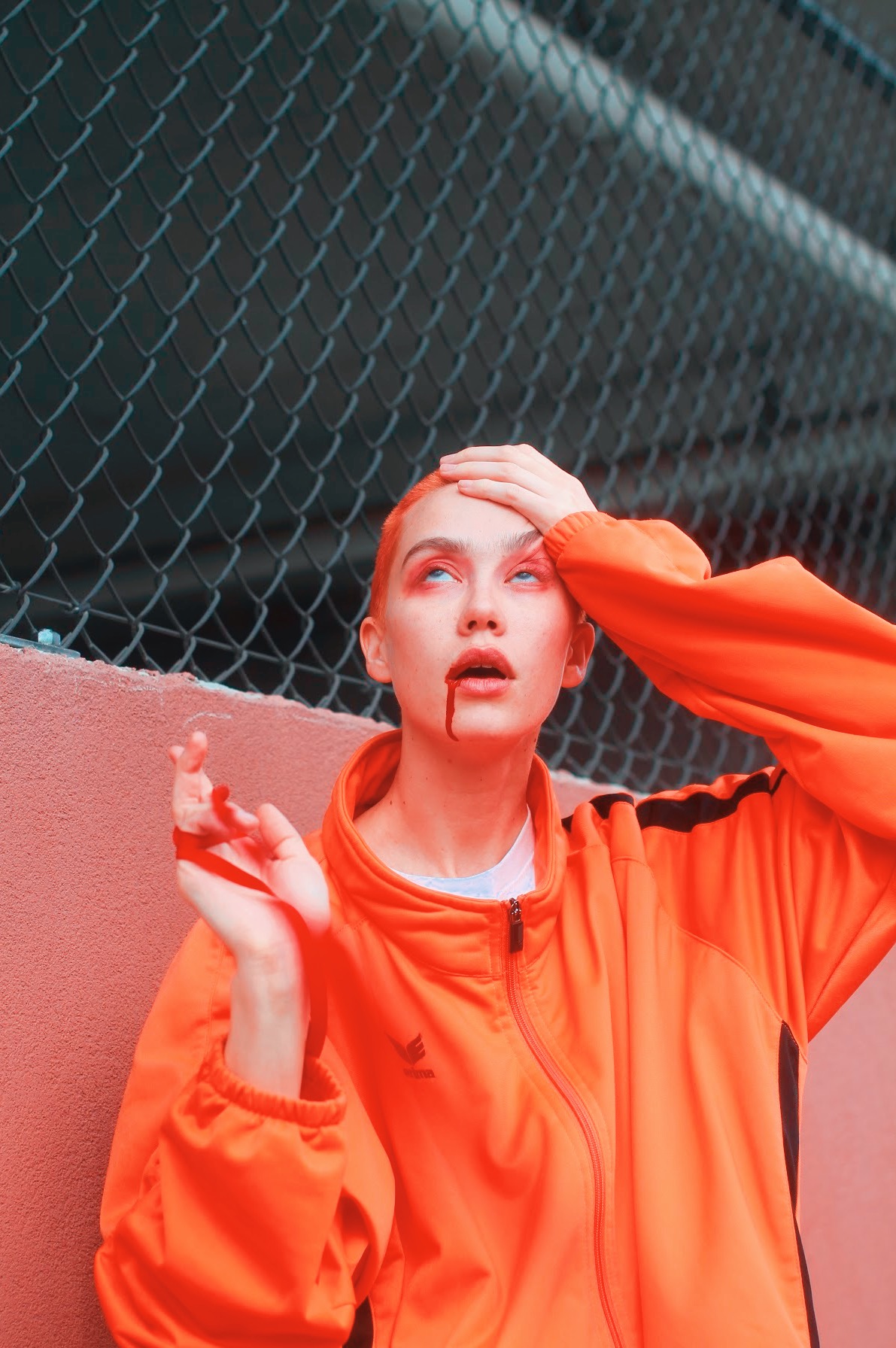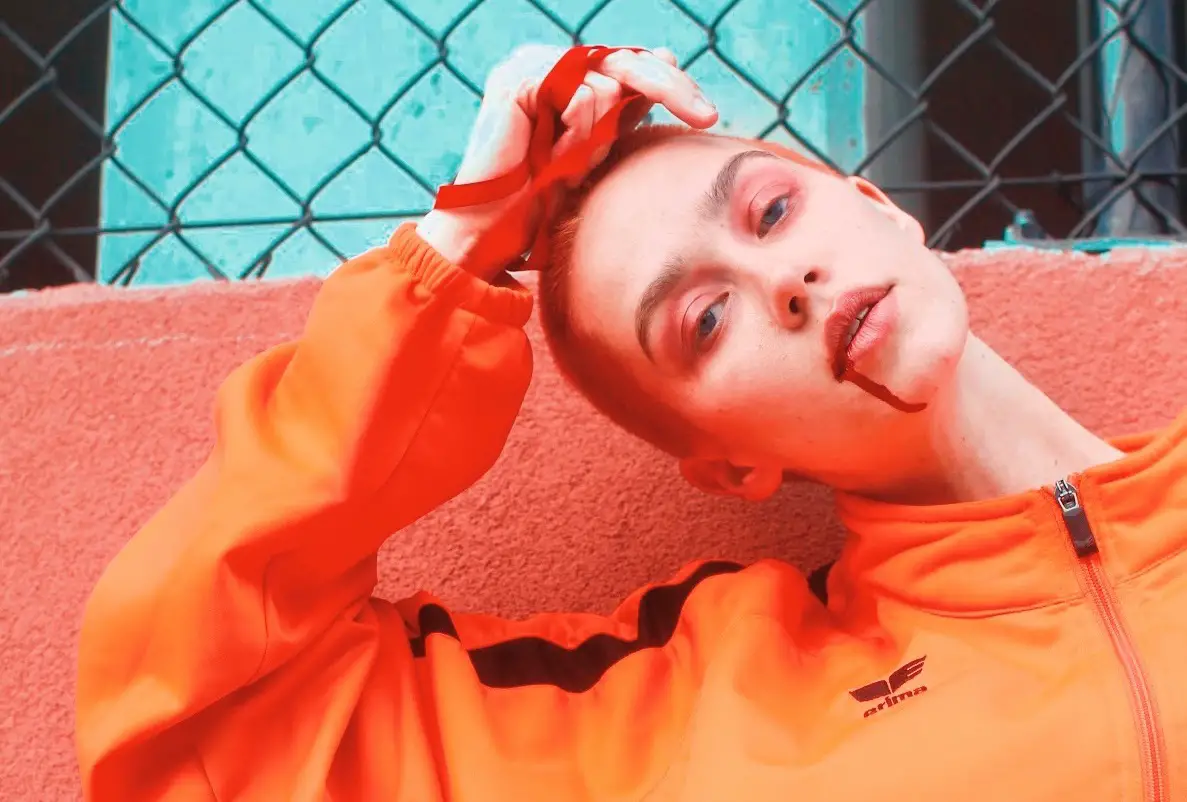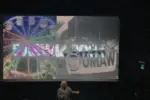Last month, the University of Southern California’s Annenberg School of Communications and Journalism, an organization that frequently conducts studies gauging different facets of the media industry, released the results of a seven-year examination of gender in the music production world.
According to the Annenberg Inclusion Imitative, as it’s called, from 2012 – 2018, there was only one female music producer for every 47 male producers. What’s more, after examining just the last four years, the study found that 97.9 percent of producers were men, and that those numbers have not showed any signs of improvement. In fact, just the opposite: 2017 and 2018 actually had the lowest number of female producers of all the years surveyed.
Madge, the genderfluid, head-shorn pop musician behind the 2018 project “Fight or Flight Club,” quoted this statistic to me when I spoke to her during Austin’s South by Southwest Festival. She had come to the 10-day event to play two shows and make the press rounds to promote her upcoming project, a five-song EP composed strictly of hauntingly digitized covers of a number of ’90s classics, called “Just a Girl.”
Later that night, at her 1 a.m. performance at a tucked-away mezcaleria, Madge took a moment between tracks to quote the same statistic to the audience. For the young musician, whose aesthetic is more or less Annie Lennox meets the Instagram era, few things are more important than pushing for more female and female-identifying musicians to get involved in the production end of the music-making process.

She knows firsthand that while promoting female musicians feels like a solution to the industry’s lack of gender parity, to really solve the problem you need to get to its roots. As in the film industry and any other creative enterprise, the person in front of the camera represents only a tiny portion of the number of people employed in the project. Female pop stars are great; female producers, mixers, studio musicians, promoters and executives are even better.
Madge, whose given name is Cat Leavy, is a testament to her own credo. Her made-for-the-big-screen backstory has been well-documented, with her Mormon roots, performance studies undergrad at New York University and musical awakening in Berlin, but it’s her background as a diy musician that she most strongly champions.
She created, from scratch, every component of “Fight or Flight Club” by herself. After working with one too many patronizing male producers, she set about making her debut album completely on her own terms. “I recorded the whole thing in my living room,” says Madge. “Just with my piano and synths lying around me. All the tools are out there for anyone, especially women and female-identifying musicians, to make the exact kind of music they want to make.”
In addition to the praise the Provo, Utah, native has received for her hands-on approach, Madge’s music has already turned a number of important heads in the saturated digital-pop field. She’s drawn comparisons to, among others, Grimes, Robyn and Frankie Cosmos for her crystalline vocals and ethereal, cyber-dream tones.
On the track “Fight or Flight Club,” the album’s eponymous opener, synths whorl in figure eights around the muted thumps of a drum machine. Reverbed-out guitar whines in alternating crescendos and decrescendos, as what sounds like laser beams pew and ding off each other in the sonic rafters. The effect is a futuristic soundscape that is in perfect sync with its author.
Notably, though, while Madge’s melodies exude a sense of poppy, chromatic bubblegum, and her falsetto reaches high into the upper register, her lyrics are rarely quite so innocent-sounding.
Indeed, depending on the song, her writing ranges from confrontational to violent. In “How to Play,” she interrogates an unnamed authority figure. “Who said that you’re the boss? Who made you the boss?” she demands. And in “Alice,” she makes frequent allusions to blood, feelings of terror and helplessness. “I wonder if it came from the gown / The blood dripping on the ground / It made a funny sound,” she sings.
In “Fight or Fight Club,” Madge’s most popular song, she addresses an abuser. “Right, left, hook, jab / You’re gonna beat me up / Gonna beat me like you beat your little sister,” she says in the opening verses. Later she is less resigned. “I wanna know why you made / Me your punching bag / Yeah you / Is it because I am mean? Or because I’m mad?”
This pairing, then, of her saccharine vocals, cyborg soundscape and macabre lyrics, leaves the listener unnerved, unsure of quite how to feel. The childlike qualities of the sound seem at odds with the visceral nature of the lyrics, and that disconnect draws your attention. It is a poignant commentary on exactly what Madge has set out to rectify in the music industry itself: a power imbalance, an ingénue up against a deeply entrenched, malevolent system.
In the future, Madge, who is a classically trained pianist and currently in talks with a harpist friend about collaborating, might move her music in a less maximalist direction. A side project of hers with longtime musical partner Eric Robertson, called New Shack, is more obviously subdued, an homage in some ways to the Cocteau Twins vibes, so she clearly has the capacity to take her foot off the pedal.

For the moment, though, the future of Madge is still in the making. She’ll be releasing two more ’90s covers next week, adding “The Favor House Atlantic” by Coheed and Cambria and “Sound of Settling” by Death Cab for Cutie to her already-existent collection: “In Too Deep” by Sum 41, “Just a Girl” by No Doubt and “Beverly Hills” by Weezer.
After that, look for an A-side/B-side release coming in the next few months, both of which will feature more hip-hop influence than any of her previous work so far.
Check out Madge’s music here, and follow her on Instagram here. Below is an edited transcript of our interview.
Mark Stenberg: You moved away your Mormon faith and other trappings of your regimented background, but you didn’t move away from playing piano. Does playing now ever trigger memories of the upbringing you left?
Madge: It’s been a process. When I was in Los Angeles after I’d graduated, I was going through my dark phase. At the time, music, specifically piano, was really traumatic for me. I do associate it very much with Mormonism, and my mom, who was very strict. In the last few years though, as I’m come to music on my own terms, going back to that routine of maintaining my repertoire has been very therapeutic for me. I have that space, that time. Now, before I start writing, I always start by playing the piano.
MS: You are definitely an artist who happens to make music, not just a musician. Was that affected in any way by your time at NYU?
Madge: I studied performance art, which is basically art theory through a performance arts lens. For me, it was an all-inclusive creative space that was really theory-heavy, and that’s how my brain works. I didn’t go in thinking, “I’m going to do music.” I went thinking, “I’m doing liberal arts, and I’m going to create.” Luckily, NYU is a space that nurtures those people.
I wouldn’t take it back, but the student debt associated with that school is very stupid. You also live in a bubble, within a liberal arts education, and while I did meet a lot of wonderful people and it looks good on my resume, a lot of what I do now is not directly related to that. Looking back, I wish I would have taken advantage of those resources a little bit more. I didn’t really think much of it then, but when you graduate you realize the real world is so expensive and the tools that you had at your disposal in college were so much more valuable than you knew.
Mark: After NYU, you actually went back to Los Angeles before going to Berlin, right?
Madge: Yeah, so I did school, graduated and was like, “I’m an artist!” but I had no direction. I was working in film, styling, writing songs, doing everything and nothing, and I realized that New York was crazy unaffordable, so I moved to Los Angeles.
Unfortunately, if you land in LA with no connections and very little direction, it’s a very easy place to get lost. There’s a party scene, there’s a lot of industry people and I kind of got disoriented in that for a minute. It actually turned into a pretty dark time for me.
MS: So how did you end up in Berlin?
Madge: Well, after a while in Los Angeles I knew I needed to get the fuck out. I got a few jobs, saved up money and went WWOOFing in Scotland. There I actually ended up working in a Victorian rose garden, and doing that work really resonated with me. In fact, a few years after all this, I went to the south of France and worked at an olive grove. But at that time, after Scotland, I got a job in Germany working at a hotel.
MS: It was there you began really making music for the first time, with collaborator Eric Robertson and your project New Shack. Even though this was before Madge, you’ve continued New Shack. How do the two different projects inform each other?
Madge: New Shack is easier, and it flows — there’s some darkness in it, but it’s me working with someone else, with a partner, so everything is more balanced. Madge is different though, because that’s all me; it’s much more personal and vulnerable.
MS: You’ve said at times that Madge is a persona. What can she do that Cat Leavy can’t?
Madge: I feel kind of like 20 different people, and Madge allows me to express every facet of that. In my vision, it’s kind of like this variety show, so I get to play all these different roles, I’m fluid between genders, it’s witchy, it’s weird. It enables me to express all the different personalities I have.
MS: You’ve mentioned that when you’re in a sexist situation you have a tendency to shrug and laugh it off, but Madge, or the music you make as Madge, is very confrontational. In your mind, does she deal with sexism in a way that you aspire to, or do you prefer using her persona to express yourself?
Madge: I’m getting better at recognizing those situations and acting on them. Like I said, 98 percent of all producers are male, so I experience situations like that all the time, and in the moment it’s very difficult to confront. Still, from that, there’s a degree of trauma that Madge allows me to express. She helps me work up to being able to deal with that.
MS: On a similar note, Madge is very much the product of diy music. If, in future projects, you no longer feel the need to handle all the production yourself, will that affect who or what Madge is?
Madge: I am and will always be open to working with other people. The heart of Madge is diy, yes, and I want to be able to do everything myself, but I’m never going to close off an opportunity, especially one with other women or other people who don’t identify as men. I’m actually really grappling with that question now. When I release my next body of work, am I going to have done every component of it? I haven’t decided.
MS: Your next project — how similar will it be, sonically, to “Fight or Flight Club”?
Madge: I haven’t narrowed down which songs I’m going to release, but they’re definitely going to be a lot higher fidelity; I’m working a lot more on the mixes. I’m very proud of “Fight or Flight Club,” obviously, but it was very much an experimentation album for me, a chance for me to explore what I could do with what I had on hand. Whereas with this next one, I want it to be a little more cohesive, I just don’t know what that sounds like right now.
















